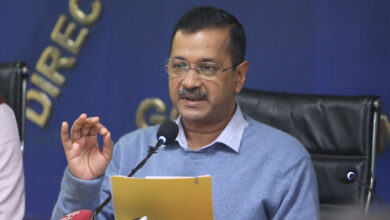Round 14 of negotiations on an India-UK free trade deal ends ahead of the scheduled election
The 14th round of discussions for a free trade agreement (FTA) between India and the UK has officially ended. Formal negotiations have been placed on pause as India gets ready for election campaigns after the announcement of the general election calendar on Saturday.

A lot of progress has been made, but the teams are not in a position to reach a consensus, according to UK officials who are aware of the conversations, which is why Round 14 closed on Friday.
The next official round of trade negotiations cannot start until after the Lok Sabha elections are over.
The goal of the India-UK Free Trade Agreement (FTA) discussions, which began in January 2022, is to achieve a “ambitious” result for bilateral commerce, which is now valued at around GBP 38.1 billion annually, according to recent government figures.
According to official sources in the UK, “we anticipate that the next round of negotiations will take place after the Indian elections, while some talks might happen between rounds.”
“Only one party is abandoning the negotiations. Simply said, we lack the necessary resources to complete an agreement that satisfies our shared goals for investment, commodities, and services. We’re very pleased with our performance history and the progress we’ve made on this trade agreement so far. The sources said that over the last several years, negotiators have put in a great deal of effort and have closed many chapters.
This comes after Prime Minister Narendra Modi and his British counterpart, Rishi Sunak, spoke on the phone earlier this week, during which they both reaffirmed their commitment to “securing a historic and comprehensive deal” and stressed the significance of arriving at a “ambitious outcome.”
India and the UK are still striving to reach a significant trade agreement. A representative for the UK Department of Business and Trade said, “We are clear that we will only sign a deal that is fair, balanced, and ultimately in the best interests of the British people and the economy, even though we don’t comment on the specifics of ongoing negotiations.”
In an interview with PTI last week in New Delhi, Commerce and Industry Minister Piyush Goyal said that India was looking for a “balanced, fair and equitable” arrangement and that long-term economic gains were crucial in any free trade agreements.
While a trade agreement with India is “possible” before the nation’s general elections, his UK colleague, Secretary of State for Business and Trade Kemi Badenoch, said earlier at a trade conference in London that Britain does not want to use that as a deadline.
The trade agreement becomes increasingly complicated with increasing national size. Additionally, it is more difficult to bargain in an economy that is more diverse. Badenoch pointed out that while we are very liberalized, India is still tremendously protectionist.
The UK wants India to drastically lower the tariffs, which are now as high as 150%, on UK goods, including food, automobiles, and whiskey.
India, on the other hand, is worried about the equity of the regulations governing Indian employees temporarily relocated to the UK on business visas, who are required to pay national insurance even though they are not qualified for social security or pensions in the UK.







